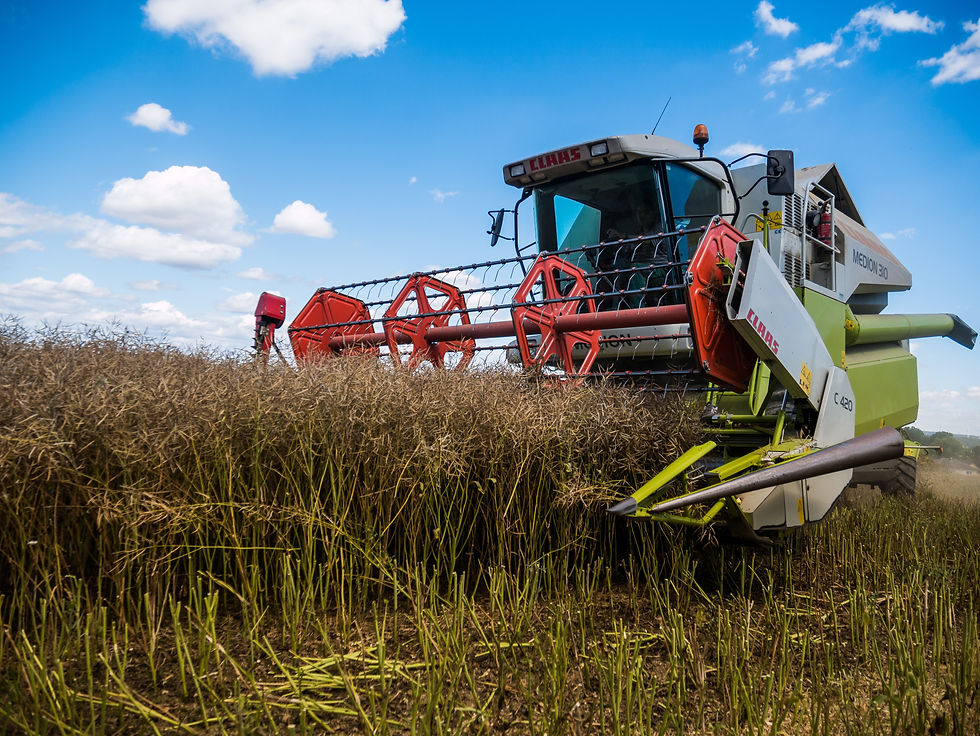Worth the Wait
- RMB

- Feb 9, 2023
- 4 min read
When I visit a person recovering from an operation or illness, almost invariably they ask that I pray for one thing: patience.
“Pastor, I need patience. Patience while I wait for healing. Patience for this time away from my regular activities. Patience for a slow recovery.” So that’s what we pray for.
Or when someone is getting antsy and restless, we remind them (very helpfully, I’m sure), “Patience is a virtue.” It is a virtue, but not one we’re good at. We can be patient for a while—maybe for as long as it feels like we’re in control—but that virtue soon runs out. Or we can be patient with a struggling person, provided they they stay cheerful. But after a few grumpy days, our patience wears thin.
Patience is a fruit of the Spirit, yet this fruit needs much cultivating in our lives. We can be an impatient people.
What are we so impatient about? We get impatient about any unsettled situation or burden: like a person close to us who needs a lot of help, or a broken relationship which hardly improves, or a difficulty that lingers, or a good thing that never comes. We pray for strength, wisdom, restoration, but then we also need to ask for patience, because things in our life rarely get better in a hurry.
It’s a good thing that God teaches us about patience. In James 5:7, He says: “Be patient.” And in the following verse: “You also be patient.” If God gives a command twice in two verses, then we need to listen carefully.
When our earthly situation is tough, what do we do? When we’re mistreated or we’re running out of money, or when a burden has been put on us which looks permanent, what do we do? James counsels us,
Be patient.
Patience is more than a passive activity, sitting around, doing nothing. Think of when you go to the doctor’s office, and she’s running 45 minutes behind schedule, so you tell yourself, “I have to be patient.” You sit and play with your phone and watch time creep slowly onwards until your name is called, and then you don’t have to be patient anymore. We equate patience with idleness.
By commending patience, the Holy Spirit isn’t telling us to take it easy or to sit tight. True patience is an expectation which is full of hope. It is looking beyond our circumstances to God’s timing, counting on what He has in store for us. True patience says time is not our own, either to exploit or to while away, but every moment in our life is directed by the good and almighty Lord.

To encourage patience, James points to the example of a farmer: “See how the farmer waits for the precious fruit of the earth, waiting patiently for it until it receives the early and latter rain” (James 5:7).
The fact is, some jobs are done quickly. You can vacuum the kitchen in under ten minutes, or install new gutters on a home in less than a day. But a farmer has to wait for months and months—he has to be patient.
He planted his crop and now he prays for rain. In Israel, many crops would be planted toward the end of the year. The farmer waits for the “early rain,” says James, the rains of late October and early November. And then the farmer has to wait again for the “latter rains” of April and May, because his crops need that last dose of moisture in order to mature to fullness.
In short, a farmer can spend much time in waiting. Because he is so dependent on the weather, a farmer might appreciate better than most how much we need to rely on God’s timing. The farmer knows he can’t control rainfall or sunshine, but must simply look to God and trust in his will.
That’s true for us all. We rely entirely on God’s good timing and wise providence, not our own scheduling or strength. We cannot control the nation’s economy, or our physical health, or how people treat us, or our children’s response to Christ. But we can look to God: still trusting in him, often praying to him, trying to being patient with his will and ways.
With God, it’s always the right time.
This spirit of patience doesn’t mean we sit and do nothing. Think again of the farmer as he waits for his crops. He put the seed in the soil, but he’s still working. After planting, he’s busy fighting the weeds, fertilizing, fixing the harvesting equipment, making room in his barns. He keeps working—and so should we. In this season of life, we patiently wait for the LORD while also strengthening our heart, serving others and enjoying God’s gifts in the “early and latter rains.”
You see, true patience can’t be understood apart from a knowledge of God’s character. We are sure that God is wise, so He always knows what He’s doing. We are sure that God is almighty, so He’s always in control. We are sure that for Jesus’s sake, God is loving, so He always does what is for our good.
There are moments when we think God has forgotten us in the waiting room. There may be times when we’re sure God’s plan for our life is all wrong, or at least poorly developed.
But when we patiently hope in him, we learn to see God as who He is. As James says just after exhorting us to be patient: “God is very compassionate and merciful” (5:11). He is always worth waiting for!



Comments